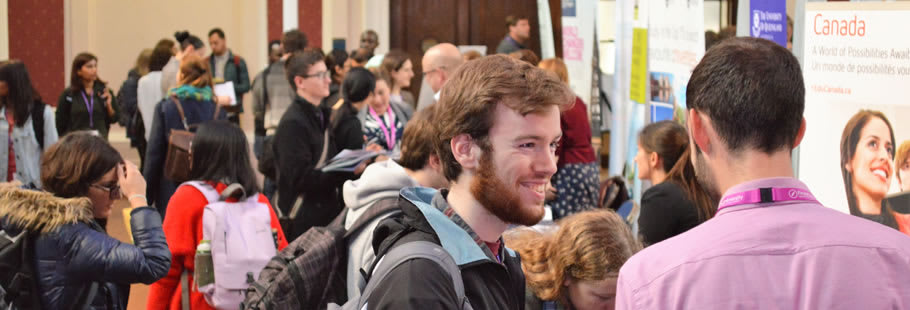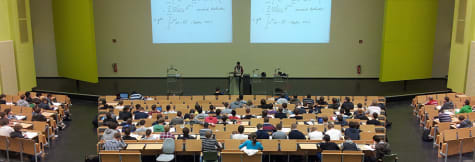Postgraduate study fairs take place all over the country and all throughout the year. However, you’ll find that many of them occur between late October to March, primarily to align with funding deadlines.
Before attending a fair you’ll want to find out who is running the event and if the institutions you are interested in are attending. This can usually be found in a published exhibitor list.
Moreover, many events also provide a full suite of talks. Some cover general but important information, like student finance and your application. Others are delivered by specific universities about particular programmes that may interest you. All of these talks provide a wealth of useful information, and whilst the fair may run for several hours, it can often be useful to plan your visit around these talk times.
Once you’ve established when and where the fair is and who is attending, it’s a good idea to start drawing up a list of questions.
In comparison to a UCAS or undergraduate fair you will often find that you’ll have a lot more time to talk to each universities’ representative, so coming in with several questions that you would like answers for is a really strong use of your time.
These can be about things applicable to postgraduate study at any university, like funding, applying, or what the university or department is like. You may also want to ask about a specific programme (what it covers, entry requirements, class sizes, etc).
Whilst all the representatives there will endeavour to answer your questions to the best of their ability, sometimes questions about specific course modules or areas of research (especially if you are considering a PhD) may be better directed to the relevant academic department. Staff present on the day are often from central recruitment teams who know information across a wide range of subjects, as opposed to being specialists in a particular academic area.
This doesn’t mean a fair isn’t useful. University representatives will normally be able to put you in touch with relevant academic staff, or find the right contact details for a Masters or PhD programme you’re interested in. Making this initial contact can also be a nice way to ‘get the ball rolling’ with your application.

 Continue with Facebook
Continue with Facebook







